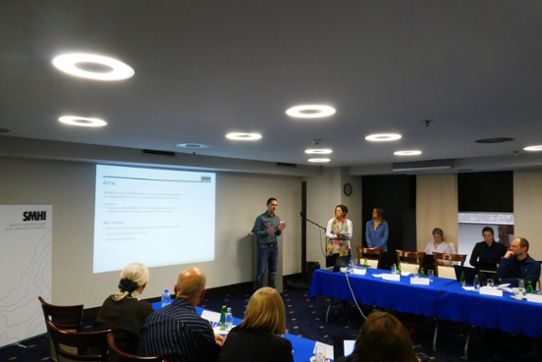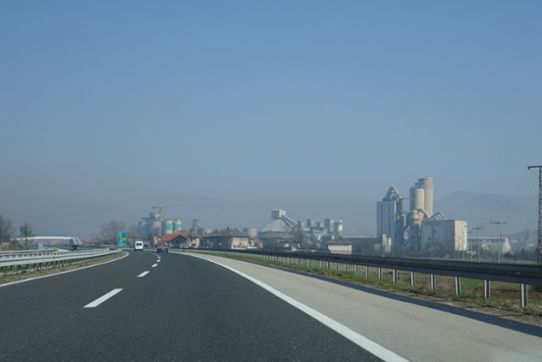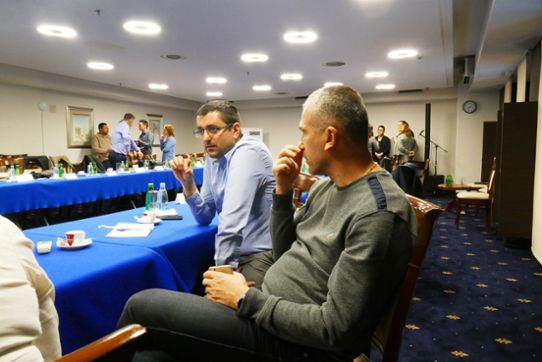Since the autumn of 2018, SMHI has been working in a SIDA project to build a system for handling air quality measurements in Bosnia and Herzegovina. The SIDA project, which is managed by the Swedish Environmental Protection Agency, is investing in both short and long-term solutions to improve air quality in the country, which according to WHO is one of the countries with the worst air quality in Europe. Exposure to air pollution has a negative impact on ecosystems and human health, which also entails significant costs for society. SMHI has now been assigned to carry out another part of the Swedish Environmental Protection Agency's projects in Bosnia and Herzegovina. This time to investigate the reasons for the country’s poor air quality and to identify the most important emission sources.
Project with several important parts
During the spring, several employees from SMHI traveled to Sarajevo and Banja Luka to start the new project.

- The purpose of the new project is to understand which sources of emissions contribute to the bad air quality, and to what extent. This will be done both with the help of a measurement campaign and with so-called emission inventories and dispersion calculations using air quality models, project manager Fredrik Windmark from SMHI explains.
Combining these different methods gives a good picture of how the air quality is affected by different emission sources. It is an important basis when the air quality is so poor that it becomes necessary to introduce emergency measures to reduce the health hazard levels. Long-term measures also become more robust thanks to the fact that decision-makers can better focus on the most efficient measures for decreasing the air pollution levels. In addition, the results will also be used in an information campaign aimed towards the Bosnian public, which will be led by the Swedish Environmental Protection Agency.
Scientific sources
During the winter of 2016, the air quality in Sarajevo was so poor that alarm levels were reached for particle concentrations. To decrease the pollution, driving bans were introduced for vehicles with odd/even registration numbers every other day.

-The decision got a lot of criticism as many thought it was not scientifically established whether traffic really was the biggest contributor. Wood and coal burning as well as industries also cause large emissions, says Helene Alpfjord Wylde, SMHI, project manager for the data hosting and continues:
- It will be very interesting to be able to provide answers on how much air quality in different places is affected by, for example, traffic or wood burning. These answers will hopefully generate public understanding to drive less and change their living habits, but also lead the way for important political decisions.
Campaign in six cities
In the project, SMHI will lead a so-called measurement campaign in six Bosnian cities during the winter of 2019/2020.
-In the measurement campaign, we will measure and analyze small particles. The particles are a major air quality problem and are harmful to health because they penetrate deep into the airways, says Heléne Alpfjord Wylde.
The advantage of looking at particles is that they consist of many substances that can be used for tracking different emission sources, says Fredrik Windmark.
There will also be a big effort put into creating emission inventories, in which you find out how large the emissions are, where they are and what it is that causes them. The focus will be on traffic, heating and industries. To be able to do this for, for example traffic, information is gathered on questions such as how many vehicles traffic every road and what type of cars the Bosnian vehicle fleet consists of.
When the emission inventory is finished, it will form the basis for dispersion modelling, which combines emissions with weather data to describe how the air pollution spreads across a city. It is then possible to for example investigate the effects of a car-free zone or more efficient filters on the industries.
Great enthusiasm for the project
During the spring, several employees from SMHI went to Bosnia and Herzegovina for the second time to discuss the ongoing project with data hosting and to inform about the new project.

- We were in both Sarajevo and Banja Luka and gathered those who in one way or another work with air quality in the country. They had never been in the same room together before this. I really think this shows the importance of this new project, where this appreciated network meeting has already created added value, says Fredrik Windmark.